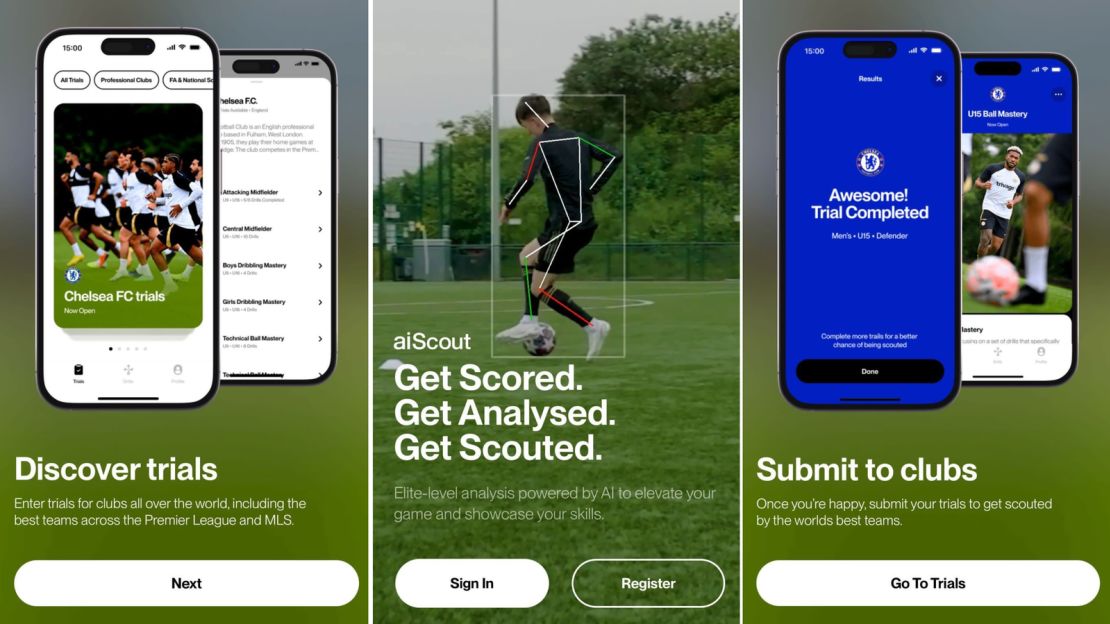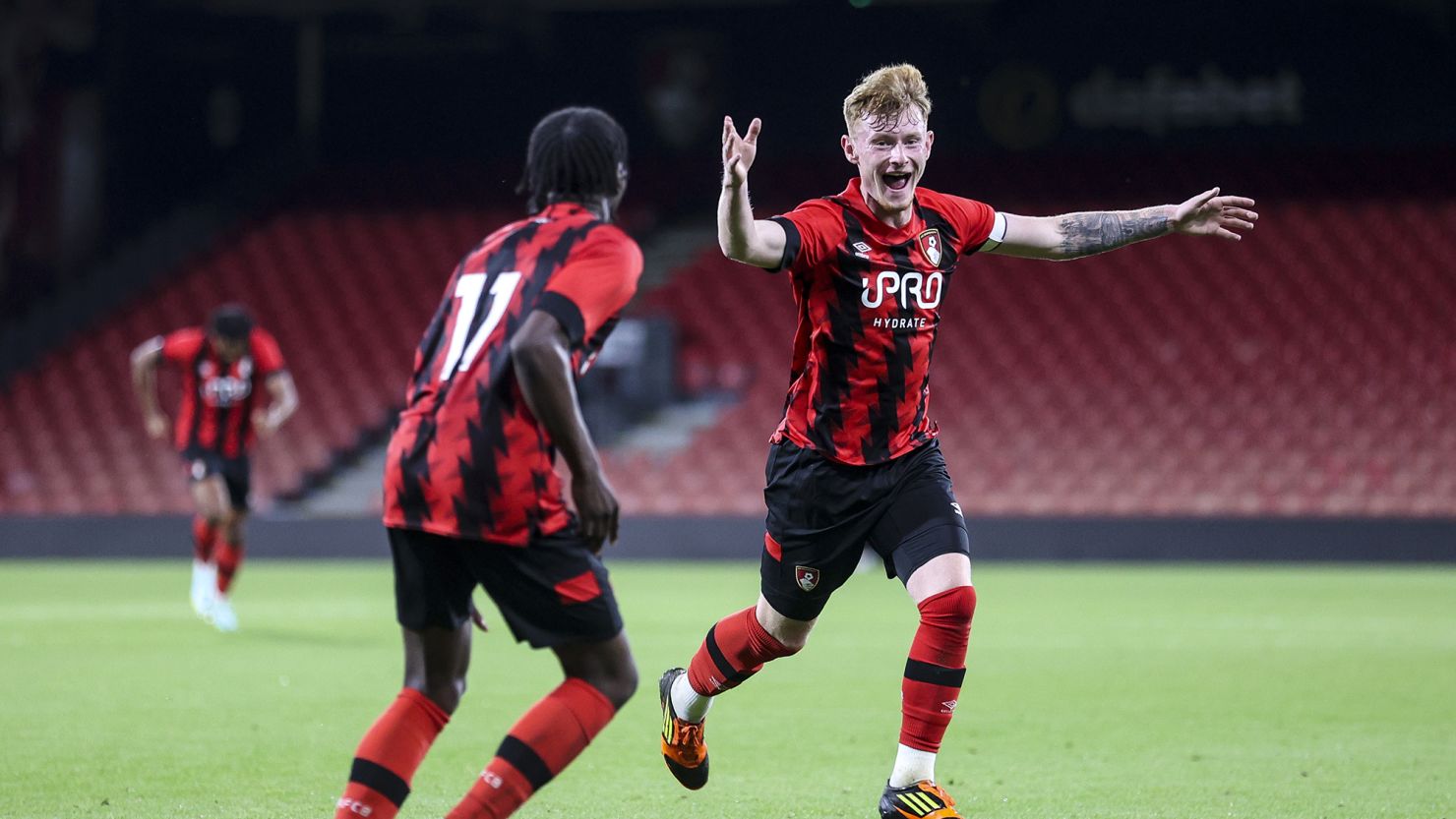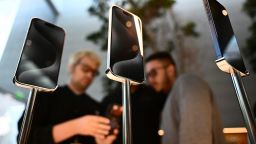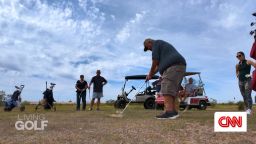A London-based technology company is looking to “democratize” talent-identification and scouting in soccer using a mobile app.
Free to download and available globally, the aiScout app allows aspiring soccer stars to enter virtual trials for professional clubs by uploading self-recorded footage of themselves completing a series of drills. It offers 75 exercises, designed to test a range of skills, with videos showing users how to complete them.
Performances are automatically scored by artificial intelligence (AI) technology. The data can then be accessed by clubs, allowing their scouts to peruse scores for viable talent, honing their search with a variety of filters; from age and gender to position on the pitch.
The app currently has two English Premier League (EPL) partners, Chelsea and Burnley, and clubs can tailor their in-app trials to meet specific needs and set their own benchmarks by having their academy players complete the same drills.
“We’re putting that data up front to make better use of [the scouts’] time,” said Richard Felton-Thomas, chief operating officer of ai.io, the company behind the app.
“To say [to scouts], ‘Go over to this place today because there’s three players in that game that are all actually beating your Chelsea standard’ — that’s going to be the best use of your time.’”
It already appears to be working for some. Ben Greenwood had never had a trial with a professional club until he downloaded the app in 2019. After uploading footage of himself, the 17-year-old landed a trial with Chelsea, becoming the first user of the app to get a trial with a pro club. He signed a contract with EPL team Bournemouth in 2021.

‘It’s more about evolution’
Having beta-tested in with players spanning 125 countries, Greenwood among them, 135 players have been trialed or signed by pro clubs or national teams through the app — which fully launched in September 2023 — according to Felton-Thomas.
Just over 100,000 players make up the current database, but with over 100 clubs lined up to join Chelsea and Burnley, as well as a multi-year partnership with Major League Soccer in the US announced last May, Felton-Thomas projects user numbers to surge into the millions as the operation ramps up this year.
Felton-Thomas said the “lion’s share” of its income comes from charging clubs a license fee to run the platform. Annual fees vary depending on the size of the club and the tools they require, ranging from six figures for “tier one” sides like Chelsea, to thousands of pounds for clubs lower down the footballing pyramid.
The use of smart technology in sport continues to expand, including AI commentary tools and wearable tech for elite athletes. The global market for sports analytics, valued at $2.7 billion in 2023, is projected to grow 22% by the end of the decade, according to market research firm Grand View Research.
Should soccer talent scouts be concerned about being edged out by the arrival of AI in their industry? For Felton-Thomas, new technologies can co-exist with traditional methods.
“It’s more about evolution than revolution,” Felton-Thomas explained.
“We can’t tell you when that player’s actually in that match, how does he deal with adversity? What happens when he’s 2-0 down? What happens when someone’s shouting at him? What happens when he’s just made a massive mistake?”
“We’ve got the ability to just augment real people to do their jobs better and faster, which then gives an opportunity to the player through the AI, but you’re still actually just connecting them to the human on the other side, which is the club and the scout.”
While football remains ai.io’s primary focus, the company is looking into opportunities in other sports to launch in the coming years. Further ahead, it may branch out beyond sports.
“You think about the notion that you can be at home and analyze your movements, and how this could spin into health care, physical assessments for military disciplines and emergency services,” Felton-Thomas told CNN.









